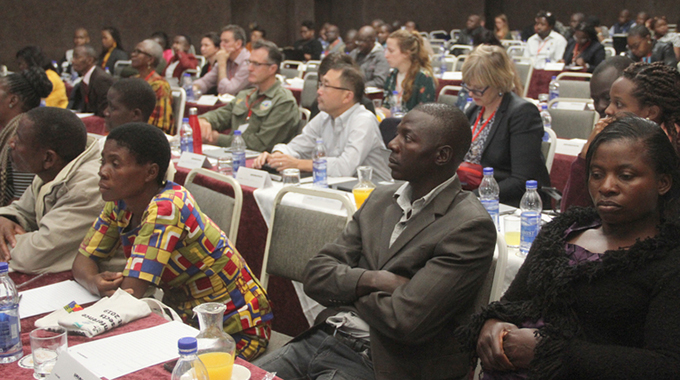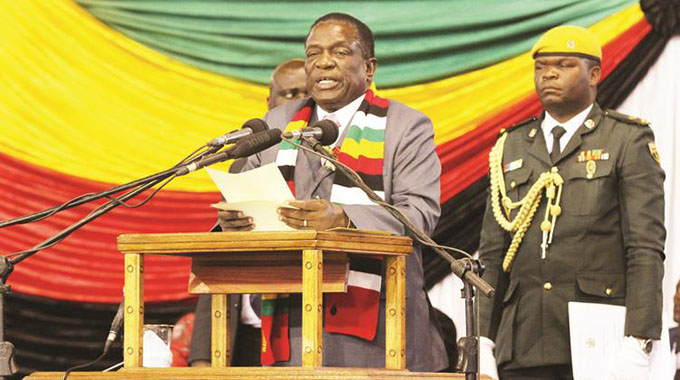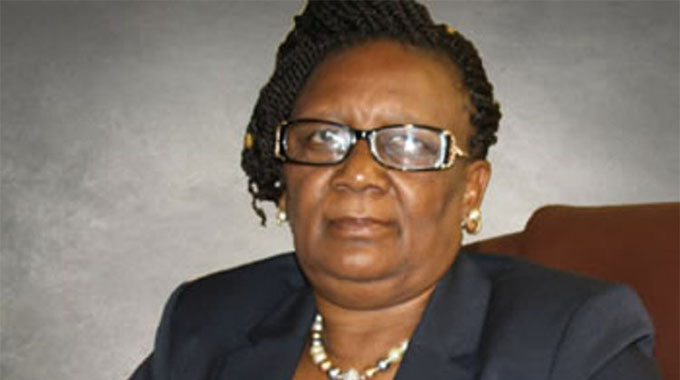‘Investors are part of economic reforms’

Tawanda Musarurwa Senior Business Reporter
Foreign and local investors are a critical element in the ongoing economic reforms to ensure their success, economic expert Professor Ashok Chakravati has said.
He said this while addressing a group of Indian investors at a Zimbabwe India Chamber of Commerce meeting in Harare yesterday.
In line with President Mnangagwa’s vision to transform the country into an upper-middle income economy by 2030, the Government is implementing painful but necessary reforms to undo years of economic mismanagement.
The economic structural reforms are being implemented under the short-term Transitional Stabilisation Programme (TSP), which has the potential to transform the country’s economy if they are fully implemented.
Prof Chakravati says investors’ contribution remain key to achieving this goal.
“We are a highly regulated economy, but the direction of the current Government is to deregulate and in that process of deregulation, there are processes and committees and dialogue which is going on to improve the business environment.
“Government needs to come up with what is needed to be changed and through the right channels and approach, we can facilitate your issues to the authorities and I am sure they will listen,” he said.
“Just to give an example, the Government has changed about 30 laws, and I can’t tell you even how many statutory instruments we have changed. I have personally been involved in the changing of about 60 statutory instruments, then regulations and licence fees. So it’s all a process.”
India’s Ambassador to Zimbabwe Rungsung Masakui, said the two Governments are in the process of reviewing trade agreements between the two countries to boost trade.
“We are reviewing several trade agreements so that we identify the current challenges as trade remains stagnant. There are, however, opportunities that still need to be exploited in the short to the long term,” said Mr Masakui.
Low volumes of trade have been a concern for both countries.
Nonetheless, Zimbabwe’s major imports from India include pharmaceuticals, base metals, chemicals, machinery and electrical components such as transformers, calibrating meters and electric conductors.
And Indian companies continue to maintain their presence in Zimbabwe, mainly in the food, beverages, pharmaceuticals, agro-processing and cooking oil production sectors among others.
Official figures show that Indian business registrations at the Zimbabwe Investment Authority (ZIA) stood at 35 last year, and as at June 2019 they were at 24.
This was from just 13 registrations in 2017, and only seven in 2016.
Zimbabwe India Chamber of Commerce (ZICC) president George Chitsinde, also highlighted the ongoing economic reforms being implemented by the Government.
“Several reforms are being undertaken by the government and it is our duty to tell the Indian business community about the implications of such moves as the nation gears towards painful but prosperous reforms,” he said.
In November last year, Indian Vice president Shri Venkaiah Naidu visited Zimbabwe and six business deals were agreed upon between Zimbabwe and India but due to foreign currency shortages and liquidity issues implementation of the deals had failed to make much headway.
But the ongoing reforms should see a lot of movement in respect of these deals.








Comments